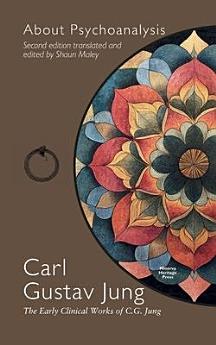The Complete Collected Letters of Kafka
The Complete Works of Franz Kafka หนังสือเล่มที่ 5 · Continental Press
eBook
454
หน้า
family_home
มีสิทธิ์
info
reportคะแนนและรีวิวไม่ได้รับการตรวจสอบยืนยัน ดูข้อมูลเพิ่มเติม
เกี่ยวกับ eBook เล่มนี้
This modern translation of Franz Kafkas collected letters provides a deeply personal view of one of literature's most profound and enigmatic figures. These letters, addressed to friends, family, and romantic partners, reveal Kafkas complex relationships and his constant negotiation between the demands of his inner world and the expectations of society. Across decades of correspondence, Kafka writes with wit, vulnerability, and piercing insight, bringing his correspondentsand the readerinto his uniquely poetic and turbulent mind deeply rooted in Nietzsche and Schopenhauer. Through letters to Max Brod, his lifelong confidant, and Oskar Pollak, a kindred spirit, Kafka reflects on art, philosophy, and the difficulty of human connection. His romantic correspondences with Milena Jesenská, Felice Bauer, and Hedwig Weiler reveal an intimate, often conflicted portrayal of love, oscillating between passion and self-doubt. Letters to family members like his sister Ottla and his father expose a man grappling with familial obligations, love, and resentment. Kafkas correspondence with intellectual contemporaries such as Gustav Janouch and Ernst Rowohlt highlights his engagement with the literary world and his Schopenhauerian-Nietzschean perspective on the human condition. Kafkas letters extend beyond his closest relationships to include figures in his professional and intellectual circles. He wrote to Gustav Janouch, a younger admirer and aspiring writer, and engaged in correspondence with Ernst Rowohlt, his publisher, discussing literary matters. Childhood connections, such as Hugo Bergmann, resurface in his writings, offering glimpses into Kafkas earlier years. Kafka also addressed letters to Felix Weltsch, a member of his circle and a fellow intellectual, as well as Robert Klopstock, a friend he met during his later years. Other significant individuals include Julie Wohryzek, another of Kafkas romantic interests, and Grete Bloch, a confidante of Felice Bauer who became embroiled in Kafkas romantic entanglements. Kafkas letters to Josefine Hochfeld, a cousin, and David Hilbert, a mathematician whose ideas fascinated Kafka, reflect his broader social network. He also corresponded with Carl Sternheim, a playwright, and Georg Langer, a philosophical peer. The letters sometimes touch on figures like Albert Einstein, whom Kafka admired from afar. These figures offer a prism through which the authors thoughts, fears, and hopes are refracted. The Complete Collected Letters of Kafka is a vivid tapestry of the relationships and ideas that shaped a man whose literary genius continues to captivate readers worldwide.
เกี่ยวกับผู้แต่ง
A Bohemian novelist and short-story writer, Kafka's work, which fuses elements of realism and the fantastic, typically features isolated protagonists facing bizarre or surrealistic predicaments and incomprehensible socio-bureaucratic powers. His writings, such as "The Metamorphosis" and "The Trial," explore themes of alienation, existential anxiety, and guilt, and are influential in modernist literature.
ให้คะแนน eBook นี้
แสดงความเห็นของคุณให้เรารับรู้
ข้อมูลในการอ่าน
สมาร์ทโฟนและแท็บเล็ต
ติดตั้งแอป Google Play Books สำหรับ Android และ iPad/iPhone แอปจะซิงค์โดยอัตโนมัติกับบัญชีของคุณ และช่วยให้คุณอ่านแบบออนไลน์หรือออฟไลน์ได้ทุกที่
แล็ปท็อปและคอมพิวเตอร์
คุณฟังหนังสือเสียงที่ซื้อจาก Google Play โดยใช้เว็บเบราว์เซอร์ในคอมพิวเตอร์ได้
eReader และอุปกรณ์อื่นๆ
หากต้องการอ่านบนอุปกรณ์ e-ink เช่น Kobo eReader คุณจะต้องดาวน์โหลดและโอนไฟล์ไปยังอุปกรณ์ของคุณ โปรดทำตามวิธีการอย่างละเอียดในศูนย์ช่วยเหลือเพื่อโอนไฟล์ไปยัง eReader ที่รองรับ










